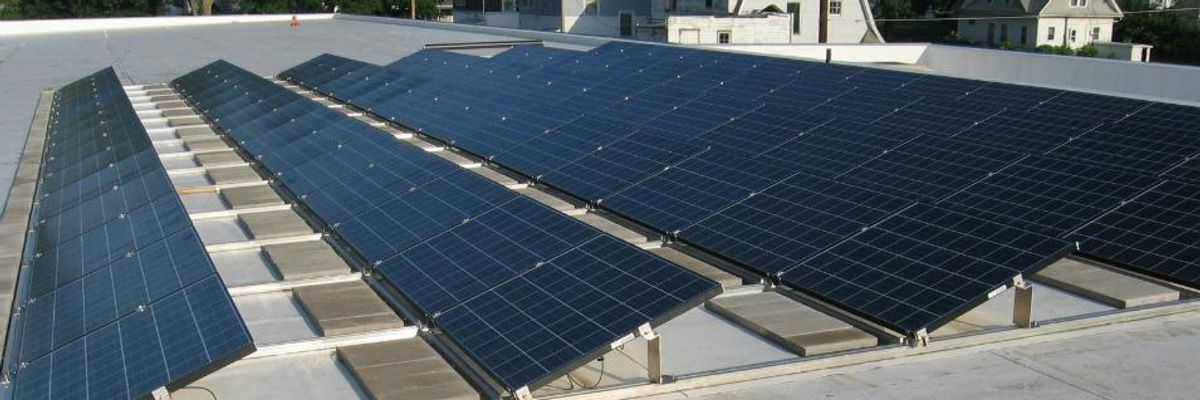President Donald Trump's decision to impose a 30 percent tariff on all solar technology imports has claimed its first victims in the fast-growing solar energy job market.
The California-based company SunPower announced Friday that as a result of the tariffs, it will hold off on a $20 million plan to expand its operations in the U.S., including hiring hundreds of Americans.
"It's not hypothetical," CEO Tom Werner told Reuters. "These were positions that we were recruiting for that we are going to stop."
Two foreign-owned solar companies, Suniva and SolarWorld, lobbied for the tariffs, arguing that cheap imports from China have caused their panel prices to fall since 2016. But after it was announced earlier this week, Trump's decision caused concern in the U.S. solar energy industry.
"While tariffs in this case will not create adequate cell or module manufacturing to meet U.S. demand, or keep foreign-owned Suniva and SolarWorld afloat, they will create a crisis in a part of our economy that has been thriving, which will ultimately cost tens of thousands of hard-working, blue-collar Americans their jobs," said Abigail Ross Hopper, president of the Solar Energy Industry Association.
Employment in the solar sector grew 17 times as fast as the U.S. economy in 2017, according to the International Renewable Energy Agency. The industry employs more than twice the Americans who work in coal, despite Trump's insistence that the coal industry will return to the dominance it once held in U.S. energy production.
The tariffs are set to go into effect on February 7. Companies will be able to apply for an exemption on February 22.
SunPower says it plans to apply to be excluded from the tariffs, arguing that its solar panels, which are largely manufactured in the Philippines and Mexico, are more efficient than other models and cost more.
An exemption would allow the company to continue recruiting for jobs in research and development, manufacturing, and sales in California and Texas.

